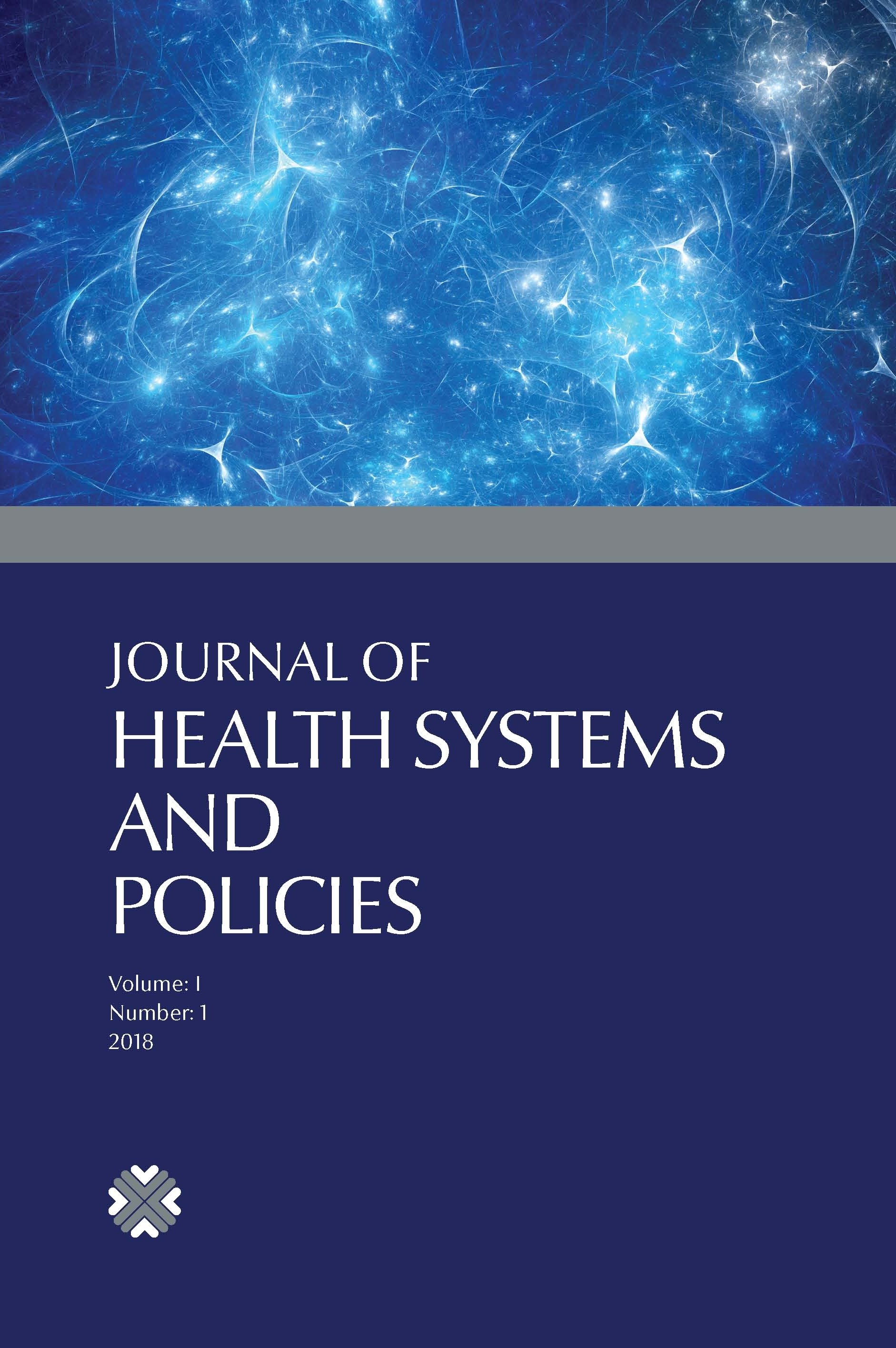Detection of Misuse or Illegal Use of Medicines: A Study Example for Tacrolimus Active Ingredient
Anahtar Kelimeler:
data mining, corruption, irregularity detection, prescription fraud
Detection of Misuse or Illegal Use of Medicines: A Study Example for Tacrolimus Active Ingredient
Corruption and irregularity are situations that we may encounter in every field such as banking, insurance, security and health. Health expenditures are increasing every year all around the world. The amount of corruption and irregularity is parallel to this increase. Corruption and irregularities in the health sector both threaten human health and cause financial losses. With the help of methods for detecting corruption and irregularities, malpractices can be avoided and also financial losses can be prevented, thus contributing to the improvement of health service delivery. The aim of this study is to identify risky individuals who may be involved in drugs, which constitute an important part of health expenditures, and who may cause corruption and irregularities. Drugs with the Anatomical Therapeutic Chemical (ATC) code with the same active ingredient were examined. Anomaly detection, association analysis and rule-based data mining methods were used for the detection of corruption and irregularity. 24 physicians were identified as with high risk. Those who were found to be risky in the analysis were examined specifically and it was confirmed that all of them abused the drug with the relevant active ingredient, thus it means that the method used is 100% consistent and accurate.
Keywords:
data mining, corruption, irregularity detection, prescription fraud,
___
- 1. Aral, K. D., Güvenir, H. A., Sabuncuoğlu, İ., & Akar, A. R. (2012). A prescription fraud detection model. Computer methods and programs in biomedicine, 106(1), 37-46.
- 2. Čampulová, M., Veselík, P., & Michalek, J. (2017). Control chart and Six sigma based algorithms for identification of outliers in experimental data, with an application to particulate matter PM10.
- 3. Ghuse, N., Pawar, P., & Potgantwar, A. (2017). An improved approch for fraud detection in health insurance using data mining techniques. International Journal of Scientific Research in Network Security and Communication, 5(5), 28-32.
- 4. Han, J., Kamber, M., & Pei, J. (2012). Outlier detection. Data mining: concepts and techniques, 543-584.
- 5. Kareem, S., Ahmad, R. B., & Sarlan, A. B. (2017, November). Framework for the identification of fraudulent health insurance claims using association rule mining. In 2017 IEEE Conference on Big Data and Analytics (ICBDA) (pp. 99-104). IEEE.
- 6. Karimi, H. A. (Ed.). (2014). Big Data: techniques and technologies in geoinformatics. Crc Press.
- 7. Kho, S. M., Pahlavani, P., & Bigdeli, B. (2021). Classification and association rule mining of road collisions for analyzing the fatal severity, a case study. Journal of Transport & Health, 23, 101278.
- 8. Kirlidog, M., & Asuk, C. (2012). A fraud detection approach with data mining in health insurance. Procedia-Social and Behavioral Sciences, 62, 989-994.
- 9. Losarwar, V., & Joshi, D. M. (2012, July). Data preprocessing in web usage mining. In International Conference on Artificial Intelligence and Embedded Systems (ICAIES'2012) July (pp. 15-16). Chapter 6, syf-251-253
- 10. Pang, G., Shen, C., Cao, L., & Hengel, A. V. D. (2021). Deep learning for anomaly detection: A review. ACM Computing Surveys (CSUR), 54(2), 1-38.
- 11. Thornton, D., Mueller, R. M., Schoutsen, P., & Van Hillegersberg, J. (2013). Predicting healthcare fraud in medicaid: a multidimensional data model and analysis techniques for fraud detection. Procedia technology, 9, 1252-1264.
- 12. Turkey Statistics Institution (2022, June 22). "Türkiye Health Expenditures Statistics," (2020). https://data.tuik.gov.tr.
- 13. United Nations, (2022, June 02). "Universal Declaration of Human Rights," (1948), https://www.un.org/en/about-us/universal-declaration-of-human-rights.
- 14. van Capelleveen, G., Poel, M., Mueller, R. M., Thornton, D., & van Hillegersberg, J. (2016). Outlier detection in healthcare fraud: A case study in the Medicaid dental domain. International journal of accounting information systems, 21, 18-31.
- 15. Verma, A., Taneja, A., & Arora, A. (2017, August). Fraud detection and frequent pattern matching in insurance claims using data mining techniques. In 2017 tenth international conference on contemporary computing (IC3) (pp. 1-7). IEEE.
- 16. Yang, W., Hu, W., Liu, Y., Huang, Y., Liu, X., & Zhang, S. (2021, May). Research on Bootstrapping Algorithm for Health Insurance Data Fraud Detection Based on Decision Tree. In 2021 7th IEEE Intl Conference on Big Data Security on Cloud (BigDataSecurity), IEEE Intl Conference on High Performance and Smart Computing, (HPSC) and IEEE Intl Conference on Intelligent Data and Security (IDS) (pp. 57-62). IEEE.
- 17. Wang, S. L., Pai, H. T., Wu, M. F., Wu, F., & Li, C. L. (2017). The evaluation of trustworthiness to identify health insurance fraud in dentistry. Artificial Intelligence in Medicine, 75, 40-50.
- ISSN: 2667-4920
- Yayın Aralığı: Yılda 2 Sayı
- Başlangıç: 2018
- Yayıncı: İstanbul Medipol Üniversitesi
Sayıdaki Diğer Makaleler
The Role of Social Psychology in Acquiring Proenvironmental Patterns of Living
Digital Maturity Assesment Models for Health Systems
Lütviye Özge POLATLI, Elif DELİCE, Hakan TOZAN, Alper ERTURK
Detection of Misuse or Illegal Use of Medicines: A Study Example for Tacrolimus Active Ingredient
